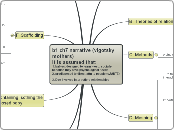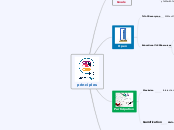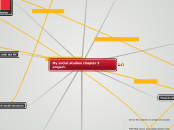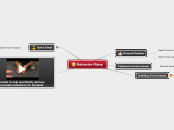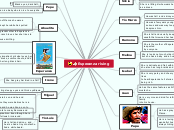b1 ch7 narrative (vigotsky mothers)
It is assumed that:1. babies: designed to learn – esp. socially because they have psychological needs
2. predisposed to direct attn to people (s.FANTZ)
3. Dev. involves interaction: relationships
I. Transacting
Active vs.passive child
Caring mother = is that a neccessary ingrediant?
Othe culture are very different
Papua New Guinea
rarely talk or make eye contact
baby seen as unable to undersatnd
Paradox of familarity
Interaction looks familar but the underlying meaning might be unclear
Universality of Role of Mother is questionalable
Both are active
H. Kein: Object relations
Deveopment of a mental model: neccessary to form attachment and later good realationships (s. bowlby)
Child constructs seperate part obects
child experieces good breast and bad breast
1. depressive position=
But:Stern: Babies are unable to divide experiences. Normal experiences are good enought to get notion of grades of goodness
Realization of one object: giving up the complete good leads to ambivalence
Leading to good satisfying relationships
Unablie to unify =
copying with bad experience
2. schizoid position
G. Containing: sothing the distressed baby
All this contributes to an internal model of relationship
FAzit
emotinal experiences are not ease to handle: coping provides child with info: emo are containable
Walker-Andrews: babies sense emotions
seem to express differnt emotions (cry,smile)
differentiate 4 differnt emotions
Oakley: many exp. neg feelings
100% could not get enough sleep
70% angry
Bradley: 1,5-3h in quiet altert state
large time in distress
F. Scaffolding
Wood:
1. suggests: modeling,
2. cuing (whats next),
3. increasing demands
Newson& Newson. guiding infants visual behviour
Mothers supporting infants visual behaviour
catching their attention by certain movment contingent on their looking - assisting with her own.
Bruner: aiding language dev.
Example
Book reading action format
Book reading using 4 utterances
rules of polite adult dialogue
contingent on childs behaviour
2. Scaffolding
structure which allows better transmition (adult controlled)
1. Joint action formats
simple stereotyped sequences of actions w. objects
After understanding how interaction works ...
0. real Tutoring begins
E. Role of imitation
Traverthen: Intersubjectivity (leads simlar to stages of TOM)
secondary
Joint attention
primary
creates awareness of each others state (to subjective experience of the other)
a) Baby learns it is effective, sense of relatedness, and TOM (mothers mind mindedness)
Mothers use natural repertoir to
a) frame interactions b) attribute intetent
Pawlby:
a) mothers did more imitation
b)progression: face / sound and hand/ actions with objects
Moran et al: 1y mothers show more imitation
perhaps anticipatory demonstrating sensitiviy
D. Meshing
Examples
Fazit
Mother frame infants behaviour so that they can become more active
pseudo-dialogue might have no meaning but it is interactive
Motherese (Fernald)
Mothers adust their speach w. high pitch,short, exagerated
thought to facilitate learning
Kaye& Fogel
Dev. of greeting: + clustering vs. random, passive to equal participation
26w equally reative and proactve: most likely when infant was attending to mother
13w some proative
clustering i.e. like burst pause rhythm
6w random and reactive
Kaye& Brazelton: Jiggling / sucking sychronicity
Produces a Conversation-like interaction
Importance
3 Structure (timing)
Burst pause feedin: mothers fit behaviour around their shaking and talking
2 Meaning (a reponse)
mother gives meaning to babies beh. and babies respond (s still face)
1 Relatedness (emotinal )
Turn-taking is a key feature of adult infant interactions
Proto convesations
Babies: Even very young babies are active particpants: Brazelton&Cramer
Mothers: i.e. scaffolding: How mothers shape their behaviour around the child
C. Methods
A single carer
Western Psychology focuses on dyadic interactions
Research based on minimizing emotions
good or bad but bad emotions challenge self image of mother
However puts too much emphasis on mother. infant interactions
Shaped by western construction of how relation has to be.
B. Theories of relationships
Pychoanalysis
Projection
important concept for how wee see other people (dealing conciously not acceptable desires, fears etc.)
Our own mental representatinos are partially shaped by our whishful thinking
Child
Projecst own motives into caregiver
Carer
Projects own motives into child
attributions will shape careres behaviour
Melanie Klein
vs. Freud important from birth
subjective interpretation of psychoanlyst is important
Freud
Early relationships important for adult personality (3-5y)
oedipus complex start of devlopment towars male or female identity
A. Readiness of interaction of mothers and Babies
B. Role of carers
Over-interpretation and wishful thinking shapes behaviour
A. Role of Babies
Infants born with a readiness to focus on caregivers
Cohn: Still face studies show that babies protest and react wari when showed depressse expresssions
Traverthen: in the first month babies and moms interations are fine-tuned & coordinated
